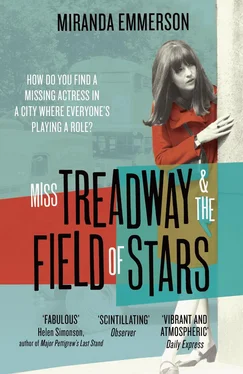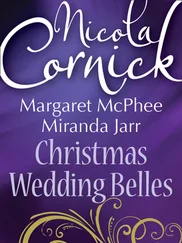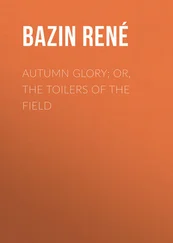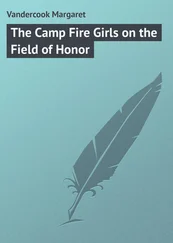Hayes smiled and changed the subject. ‘I gather she was a big star but I have to confess I’d never heard of her. Perhaps I recognised her face …’
‘She is a star … of a sort. She’s had top billing in at least one film. But she isn’t Julie Andrews or Elizabeth Taylor. And she probably made it too late. If you’re a woman you have to make it at twenty and then stay there and even then … It’s a very uncertain business. My theatre manager, Leonard, he says she’s got maybe another three years in pictures and then she’ll need a stage career. That’s why her agent wanted her to do this play.’
‘Was she depressed about all this? About the uncertainty of it all?’
‘She never said she was. She always seemed very philosophical about it. She just wanted to work. I mean, she worried about money. She always worried about money.’
‘This interview she gave … have you read the transcript? I mean the bit they printed in the paper.’
‘Not really. I was there for nearly all of it and it rather annoyed me. The way they printed it after they knew she was missing.’
Hayes drew out a newspaper cutting.
‘I’m going to read from it. I want you to tell me if anything might have been left out, or added, or if there’s anything you don’t remember her saying … Okay. There’s a load of silliness at the beginning: “lies back on her green velvet chaise longue”, “tale of heartbreak and longing”, blah blah blah. Then it begins. “ Wuthering Heights was my big break, though. It really made my name. From my humble beginnings among the Boston Irish I could never have imagined I’d be so successful in Hollywood. California seemed like another planet, not where a girl of my humble origins belonged at all.” How does it sound so far?’
‘Well, the gist of it makes sense. I don’t remember Iolanthe saying it quite like that and he’s leaving out a lot. But it’s sort of rightish.’
‘Okay. She goes on: “In many ways I’m doing all of this for my little brother Nate. He was killed in Japan at the end of the war and it broke all our hearts. My poor mother never got over the shock of losing him. By the age of twenty-one I was all alone in the world.” Okay?’
‘I’m pretty sure her mother died before her brother did. The chronology’s wrong.’
‘Anything surprising?’
‘Not really.’
‘“I ask Miss Green about her connections with Ireland. ‘My grandfather’s family – the Callaghans – claimed to have pledged allegiance long ago to Perkin Warbeck when he made his claim to the English throne. And I like to think that a piece of that rebel heart lived on in all of us, helping us to fight a little harder for the things we believe in.’” How’s that?’
‘I can’t imagine Iolanthe knowing who Perkin Warbeck was. But … I don’t know. They did talk about Ireland. And I was cleaning things and moving around. Maybe I wasn’t paying enough attention.’
‘It goes on: “I ask Miss Green what she’s enjoying most about her time in London. ‘Oh, James, it’s hard to choose. I’ve lived in Boston and New York and Los Angeles but there’s something really special about London. Some magic ingredient. I think it’s the coming together of so many different, vibrant people all in one spot. I’ve loved the parties I’ve been invited to here: at Ronnie Scott’s, the Marquee and the Flamingo. The music you have in England is amazing. I think there’s something in the Celtic heart that responds to that beating of drums, that essential rhythm of the night.’ I tell her that our diarist was thrilled to spot her coming in and out of Roaring Twenties on Carnaby Street on several nights last week, but Miss Green just blushes and stands to fix her make-up. She has another show to do. I let her rebel heart prepare.”’
‘Yuck.’
‘Well, yes. But is it accurate?’
‘I’ve no idea. I didn’t know Iolanthe went to clubs. As far as I was concerned she was trotting off back to The Savoy every night at eleven. I don’t … I’m sorry. I can’t honestly say that she didn’t mention this because I might have missed it, but it doesn’t bear much resemblance to the conversation I heard.’
Barnaby Hayes stared down at the clipping in front of him and wrinkled his brow.
‘Is that helpful?’ Anna asked.
Hayes looked up at her and smiled a smile of frustration. ‘Well, it’s all helpful if it’s true, isn’t it?’
‘Is it, though? Does it get you any closer to what happened to her?’
‘The thing about truth, Miss Treadway, is that it’s not always the friend of narrative. My job is to figure out your friend, Miss Green, and to construct a likely narrative that will help us to determine if she left of her own free will or was taken. And there are two ways I can go about this. I can invent a number of plausible narratives and try and hold them up against the facts until I find the one that fits. Or I can listen to all the facts – with no particular narrative in mind – and then assemble the known knowns in such a way that they reveal the basic truth of the matter.
‘And I have to tell you that in my experience the human brain only wants to do the former. It wants to think like a scientist. Hypothesis. Experiment. Results. It doesn’t want to look at all the facts in all the world and wait for a pattern to emerge. Because that is a ridiculously hard thing to do. It’s the sort of thing that only geniuses can achieve. Normal people need a narrative. And currently your Miss Green refuses to offer much of one.’
‘Why do women usually go missing?’
‘Because their husbands beat them. Or they have affairs and decide to run away. Some of them are murdered. But not many. Mostly it’s violence. At home.’
Anna watched Hayes scanning the pieces of paper and was briefly jealous of the job he did. She couldn’t remember the last time she’d been asked to use her mind for anything much at all beyond the dressing and undressing of actresses.
Hayes sighed. ‘Let’s go back to the names. Yolanda, Nathaniel, Maria. We know Nathaniel was the brother. Killed in Japan. Yolanda and Maria?’
‘Well, one of them must be the mother. Or an aunt.’
‘But if they’re dead …’
‘… then why is she giving them her money?’
‘Unless it’s just tax avoidance.’ Hayes shook his head then he looked Anna hard in the eye. ‘You talked to Iolanthe more than most, didn’t you?’
‘Probably. At work anyway.’
He tore a piece of paper off the bottom of one of his notes and wrote down two numbers on it.
‘This one’s work. This one’s home. If you think of something; doesn’t matter what. Ireland. Names. Clubs. Money. Men. Will you call me? Please? I would like to find her alive.’
Anna took the slip of paper and filed it in the pocket of her handbag. Then they sat for a moment in the silence of the room, looking at each other. It occurred to Anna that there was an odd kind of intimacy to a police interview. She couldn’t remember the last time she’d been alone in a room with a man, certainly not a man who looked to be the same age as she was.
Hayes gave her a slightly embarrassed smile. ‘I hope we find her,’ he said. And then he stood and almost seemed to be bowing but offered her his hand instead. Anna took it and shook it and wished that her own wasn’t so slippery.
‘It was nice to meet you, Sergeant Hayes.’
‘And you, Miss Treadway.’ Hayes opened the door to let her out into the corridor.
***
On Sun Street, Orla and Gracie made oatmeal biscuits because having the oven on made the kitchen warm and then Gracie drank milk at the table and drew a monster in blue and purple crayon with eyelashes that licked the edges of the page. Orla made them toast and beans for lunch and drank cup after cup of tea to ease the passing of the hours.
Читать дальше












